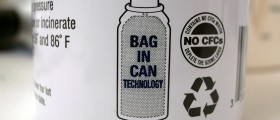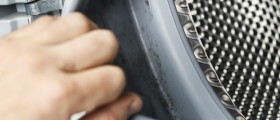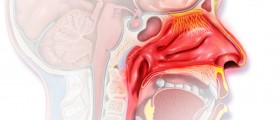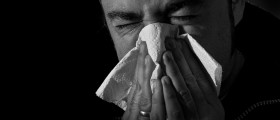
Sinus infections
Sinus infection or sinusitis is an inflammation of the lining of the sinuses and nasal passages. Sinuses play several important roles. Among other things, they insulate the skull and allow the voice to resonate. There are four major pairs of sinuses: frontal sinuses, located behind the forehead, maxillary sinuses behind cheek bones, ethmoid sinuses between the eyes and sphenoid sinuses behind the eyes.
Sinusitis, which can be acute or chronic, can be infectious or non-infectious. Non-infectious sinusitis is usually related to seasonal allergies or inhaled irritants while infectious sinusitis, which usually develops during or after common cold or flu, can be bacterial, viral and, less commonly, fungal.
In most cases, sinusitis clears after ten to fourteen days. Anything longer than eight weeks is considered chronic sinusitis, especially if it occurs several times a week.
Common symptoms of sinusitis include feeling of pressure in the face, especially around the eyes, headache, tenderness, fatigue, fever, nasal congestion or runny nose and post-nasal drip.
Prevention of sinus infections
Generally speaking, prevention of sinus infections depends on the specific cause. Viral sinusitis is quite common, especially from late fall to early spring. The prevention of this form of sinusitis is the same as the prevention of flu, cold and other viral upper respiratory infections. This means avoiding direct contact with infected persons, frequently washing hands, especially after touching shared objects, door knobs, telephones and such, avoiding small, crowded and confined spaces and possibly getting vaccinated for influenza.
Other things that can help include multivitamins, balanced diet, regular physical activity and stress reduction, all the things that can help boost the immune system. It is also very important to keep the sinuses in good shape, which can be achieved by drinking plenty of water, spending time in fresh air, avoiding dry, smoky or dusty indoor air and using saline sprays or other neutral nasal sprays.
Sinusitis that is associated with seasonal allergies can be prevented or controlled by reducing the exposure to allergens. If avoidance is not possible or if it is too complicated, over-the-counter medications, mostly antihistamines, are highly recommended.
Traveling in airplanes tends to aggravate the inflammation of the sinuses and it is generally unfavorable for upper respiratory tract. Because of this, it is recommended to use a mild decongestant before the flight and to instill saline spray several times during the flight.
Sinuses can also suffer from the water in public swimming pools. People who are prone to sinusitis should avoid diving in such water.

















Your thoughts on this
Loading...